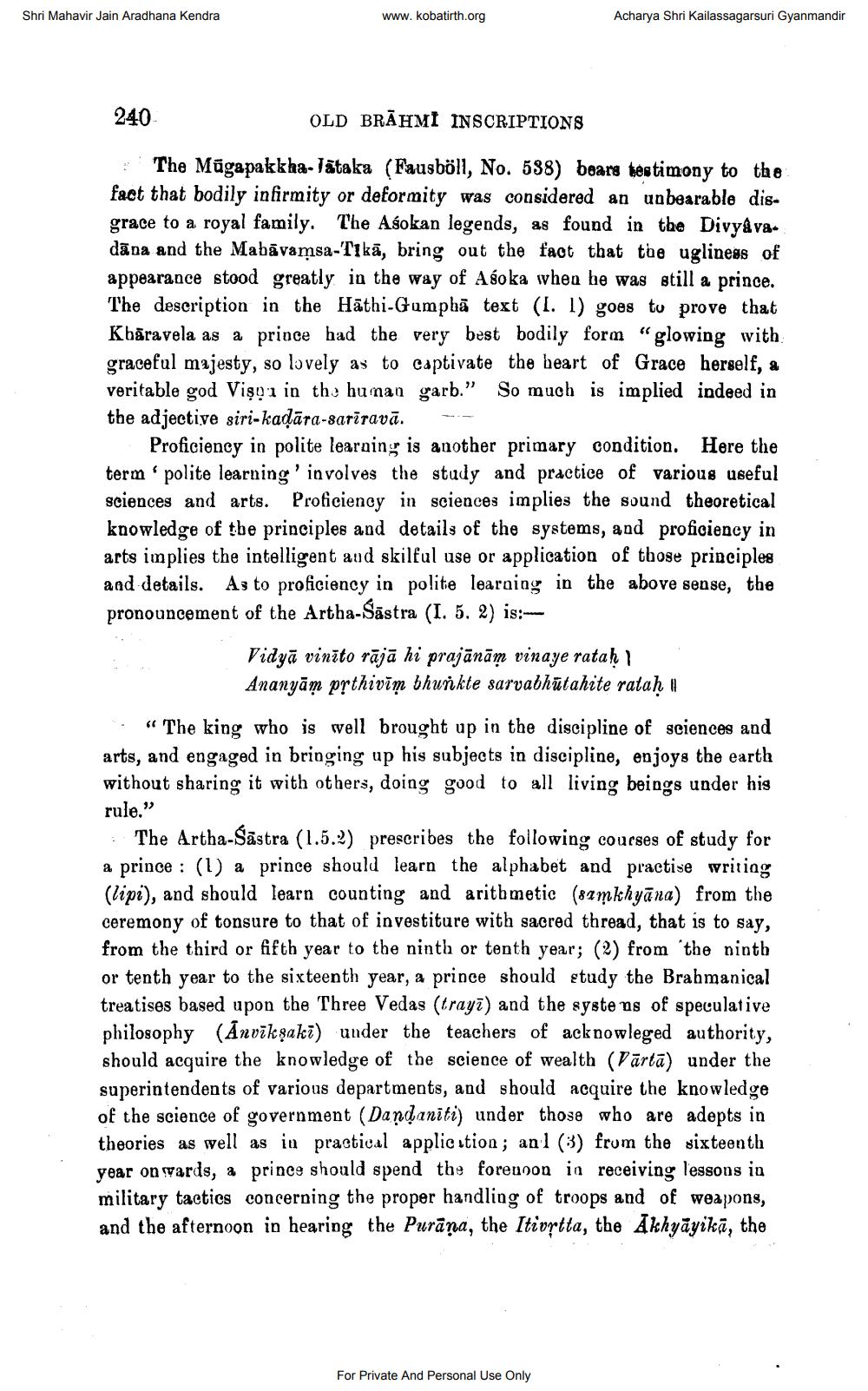________________
Shri Mahavir Jain Aradhana Kendra
www.kobatirth.org
240
OLD BRAHMI INSCRIPTIONS
The Mugapakkha-Jataka (Fausböll, No. 588) bears testimony to the fact that bodily infirmity or deformity was considered an unbearable disgrace to a royal family. The Aśokan legends, as found in the Divyava. dana and the Mahāvamsa-Tikā, bring out the fact that the ugliness of appearance stood greatly in the way of Asoka when he was still a prince. The description in the Hathi-Gumpha text (I. 1) goes to prove that Khāravela as a prince had the very best bodily form "glowing with graceful majesty, so lovely as to captivate the heart of Grace herself, a veritable god Visga in the human garb." So much is implied indeed in the adjective siri-kaḍāra-sarīravā.
Acharya Shri Kailassagarsuri Gyanmandir
Proficiency in polite learning is another primary condition. Here the term 'polite learning' involves the study and practice of various useful sciences and arts. Proficiency in sciences implies the sound theoretical knowledge of the principles and details of the systems, and proficiency in arts implies the intelligent and skilful use or application of those principles and details. As to proficiency in polite learning in the above sense, the pronouncement of the Artha-Sastra (I. 5. 2) is:---
a
Vidya vinīto rājā hi prajānām vinaye rataḥ\ Ananyam prthivim bhunkte sarvabhutahite rataḥ ||
"The king who is well brought up in the discipline of sciences and arts, and engaged in bringing up his subjects in discipline, enjoys the earth without sharing it with others, doing good to all living beings under his rule."
The Artha-Sastra (1.5.2) prescribes the following courses of study for prince: (1) a prince should learn the alphabet and practise writing (lipi), and should learn counting and arithmetic (samkhyāna) from the ceremony of tonsure to that of investiture with sacred thread, that is to say, from the third or fifth year to the ninth or tenth year; (2) from the ninth or tenth year to the sixteenth year, a prince should study the Brahmanical treatises based upon the Three Vedas (trayi) and the systems of speculative philosophy (Anvikṣaki) under the teachers of acknowleged authority, should acquire the knowledge of the science of wealth (Vārtā) under the superintendents of various departments, and should acquire the knowledge of the science of government (Dandanīti) under those who are adepts in theories as well as in practical application; anl (3) from the sixteenth year onwards, a prince should spend the forenoon in receiving lessons in military tactics concerning the proper handling of troops and of weapons, and the afternoon in hearing the Purāṇa, the Itivṛtta, the Akhyāyikā, the
For Private And Personal Use Only




